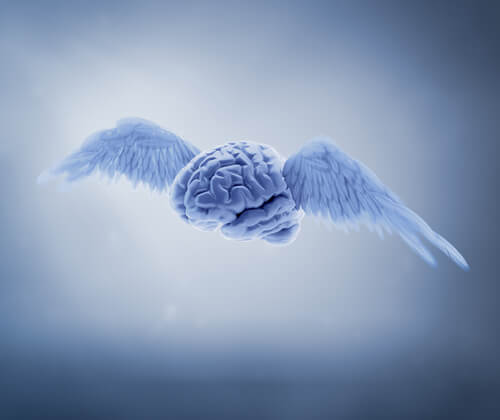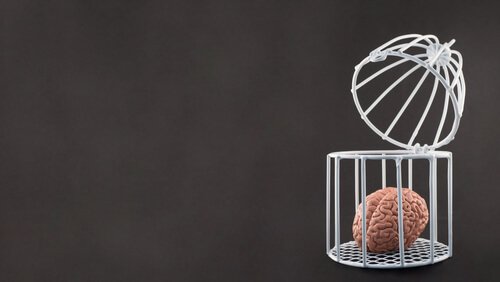Keep an Open Mind and Think Critically


Written and verified by the psychologist Sergio De Dios González
Children have many natural abilities that never cease to amaze adults, including the fact that they have an unbiased view of the world. Consequently, they’re less resistant to learning new things. In that sense, children represent the paradigm of the open mind.
Adults, on the other hand, have a lot of fixed ideas. As you age, you modify, shape, and perfect these ideas based on life experiences. These schemas make the world more predictable, but they can also make you more resistant to change. Fixed ideas about the world tend to feed a fear of change.
In this sense, science might be the perfect showcase for this idea. Copernicus, Galileo, and Einstein all experienced first-hand what can happen when you challenge deeply-held misconceptions about the world.
According to a study by Sierra and Perez Vega from the National Autonomous University of Mexico, these preconceived notions also have an influence on child rearing styles and potential behavior problems that stem from them.

An Open Mind and First Impressions
Let’s delve deeper into how this plays out on a personal level. You probably know how hard it is to change your first impression of someone. But why is that? Basically, it’s because that first impression gives you a basis for inferring intentions or a hypothesis about what goes on around you. You build a structure based on assumptions that isn’t easy to dismantle.
For some reason, we tend to believe that other people are consistent in their thinking and behavior. That makes no sense, however, because human beings are contradictory. Our interests vary and our moods are constantly changing. Human beings change as they learn and try to adapt to circumstances.
Stepping Out of Your Comfort Zone
As a result of this contradiction, keeping an open mind means giving up something that makes you feel comfortable. It means questioning what you already know and analyzing your preconceptions. If you’ve always thought that your friend John is generous, you’ll tend to see his actions in a positive light. If you think he’s selfish, on the other hand, you’ll see a generous act as an attempt to manipulate or brainwash someone.
You could argue that, at the end of the day, it doesn’t matter what you think about John because he is who he is. However, your interpretation of the world based on preconceived notions has important consequences. It changes the way you treat other people, for example. Although you’ll gladly accept help from a friend you believe to be generous, you’ll be suspicious when a friend you think is selfish offers you help.
This is one of the reasons why it’s so important to keep an open mind. Having an open mind gives you mental flexibility. It allows you to question your preconceived ideas and assumptions. However, is there any downside to being open-minded? Can you be too open-minded?

Be Open-Minded, but Don’t Forget to Think Critically
If you’re blindly open-minded and don’t exercise your critical thinking skills, you believe anything anyone tells you. There are plenty of trendy ideas that spread like wildfire and then quickly die out when held up to scientific examination. Many promising findings from one study can never be replicated again by researchers. This principle doesn’t apply just to scientific theories. Plenty of assumptions stem from personal experience and manage to work their way into your world view and support pre-existing biases.
Another example of this idea is people with cancer or other illnesses who stop all conventional medical treatment in favor of some well-marketed but ultimately ineffective alternatives. Although these patients are open to new ideas, they go to the other extreme and place all their hope in interventions with no scientific backup.
In conclusion, having an open mind can enrich your life and help you find solutions to problems, but not if you forget your common sense in the process. Your ability to think critically and make good decisions is equally important. At the end of the day, an open but uncritical mind is a recipe for disaster.
Children have many natural abilities that never cease to amaze adults, including the fact that they have an unbiased view of the world. Consequently, they’re less resistant to learning new things. In that sense, children represent the paradigm of the open mind.
Adults, on the other hand, have a lot of fixed ideas. As you age, you modify, shape, and perfect these ideas based on life experiences. These schemas make the world more predictable, but they can also make you more resistant to change. Fixed ideas about the world tend to feed a fear of change.
In this sense, science might be the perfect showcase for this idea. Copernicus, Galileo, and Einstein all experienced first-hand what can happen when you challenge deeply-held misconceptions about the world.
According to a study by Sierra and Perez Vega from the National Autonomous University of Mexico, these preconceived notions also have an influence on child rearing styles and potential behavior problems that stem from them.

An Open Mind and First Impressions
Let’s delve deeper into how this plays out on a personal level. You probably know how hard it is to change your first impression of someone. But why is that? Basically, it’s because that first impression gives you a basis for inferring intentions or a hypothesis about what goes on around you. You build a structure based on assumptions that isn’t easy to dismantle.
For some reason, we tend to believe that other people are consistent in their thinking and behavior. That makes no sense, however, because human beings are contradictory. Our interests vary and our moods are constantly changing. Human beings change as they learn and try to adapt to circumstances.
Stepping Out of Your Comfort Zone
As a result of this contradiction, keeping an open mind means giving up something that makes you feel comfortable. It means questioning what you already know and analyzing your preconceptions. If you’ve always thought that your friend John is generous, you’ll tend to see his actions in a positive light. If you think he’s selfish, on the other hand, you’ll see a generous act as an attempt to manipulate or brainwash someone.
You could argue that, at the end of the day, it doesn’t matter what you think about John because he is who he is. However, your interpretation of the world based on preconceived notions has important consequences. It changes the way you treat other people, for example. Although you’ll gladly accept help from a friend you believe to be generous, you’ll be suspicious when a friend you think is selfish offers you help.
This is one of the reasons why it’s so important to keep an open mind. Having an open mind gives you mental flexibility. It allows you to question your preconceived ideas and assumptions. However, is there any downside to being open-minded? Can you be too open-minded?

Be Open-Minded, but Don’t Forget to Think Critically
If you’re blindly open-minded and don’t exercise your critical thinking skills, you believe anything anyone tells you. There are plenty of trendy ideas that spread like wildfire and then quickly die out when held up to scientific examination. Many promising findings from one study can never be replicated again by researchers. This principle doesn’t apply just to scientific theories. Plenty of assumptions stem from personal experience and manage to work their way into your world view and support pre-existing biases.
Another example of this idea is people with cancer or other illnesses who stop all conventional medical treatment in favor of some well-marketed but ultimately ineffective alternatives. Although these patients are open to new ideas, they go to the other extreme and place all their hope in interventions with no scientific backup.
In conclusion, having an open mind can enrich your life and help you find solutions to problems, but not if you forget your common sense in the process. Your ability to think critically and make good decisions is equally important. At the end of the day, an open but uncritical mind is a recipe for disaster.
This text is provided for informational purposes only and does not replace consultation with a professional. If in doubt, consult your specialist.







